Pneumonia is an infection that affects the tiny air sacs of the lungs. There are different types of pneumonia and they range from mild to severe. Depending on its cause, pneumonia treatment is administered. This health condition can sometimes prove to be fatal, and it can lead to serious health problems, even death.
What are The Symptoms of Pleural Effusion Pneumonia?
Different types of pneumonia have different types of symptoms. Some kinds of pneumonia have no symptoms at all. In general, symptoms can be as common as a cold or the flu. Some of the symptoms are as follows,
- Different types of cough and colored phlegm, such as green, yellow, or sometimes bloody (rust colored)
- Fever and chills
- Shooting sharp chest pains that can get worse when you are breathing deeply or coughing
- Shortness of breath
- Headache
- Appetite loss
- Excessive fatigue
- Confusion (the elderly suffer from it more than the younger lot)
What Causes Pneumonia?
The occurrence of bacteria, a virus, or other organisms can lead to pneumonia. When you inhale different types of viruses into one or both lungs, you have a chance of inhaling pneumonia. Infection can even occur in the bloodstream, or after certain trauma or surgery in or near the lungs. When the immune system struggles to fight these organisms, the lungs’ air sacs get inflamed and filled with fluid. There are different causes of Pneumonia. Some of them are listed below,
- Bacteria
- Viruses
- Mycoplasma (an antibiotic-resistant bacteria)
- Fungi
- Secondary infections in people with AIDS
- Accumulation of liquid or other substances into the lungs
Who is Likely to Develop Pneumonia?
Pneumonia can affect people of all ages, but it mostly affects young children and people who are elderly, older than age 65. Check out the following reasons why someone may develop pneumonia.
- Chronic illnesses such as cardiovascular disease and diabetes
- Lowered immunity, caused by chemotherapy, HIV/AIDS, or certain drugs
- Paralyzed patients or patients who have been unconscious for long periods
- Alcohol abuse
- Cigarette smoking
- Use of either a breathing tube or ventilator while hospitalized
- Being exposed to certain pollutants or certain chemicals
- Having trouble swallowing (such as after a stroke), which can cause patients to aspirate food, liquid, or saliva right back into the lungs
How Do You Diagnose Pneumonia?
Physicians may diagnose this condition after they hear a crackling and wheezing sound when they use a stethoscope to check on the patient’s lungs. A chest x-ray usually confirms the presence of fluid in the lungs, which is one of the symptoms of pneumonia. In order to be sure, the physician may also order additional tests, and that includes blood tests and cultures of lung fluid or sputum.
What is Conventional Pneumonia Treatment?
Conventional treatment for pneumonia is dependant on the causative agent and the condition of the patient. For bacterial pneumonia, the physician may prescribe antibiotics. These medications usually do not help with viral pneumonia, which is similar to the conditions such as flu – that is fluids and rest. Sometimes though, antiviral medication also helps. But sometimes bacterial infections often follow these types of viral infections, so antibiotics are administered to stop the condition from progressing. Over-the-counter drugs can nullify and provide relief from fever.
Severe pneumonia types require immediate treatment with certain intravenous medications such as antibiotics and in some cases, supplemental oxygen is provided. Occasionally a patient is placed on a mechanical ventilator to maintain lung function while the infection gradually clears up. In order to prevent the disease, physicians may recommend the pneumococcal vaccine, especially to people who are at high risk of developing the disease.
Acupressure Points for Treating Pneumonia
Traditional Chinese medical theory advocates special acupoints, or acupressure points to be an effective holistic treatment for pneumonia. They believe that acupoints lie along meridians, or channels, in your body. These are the same energy meridians and acupoints which can be targeted to treat various conditions. It is believed that vital energy flows through these invisible channels – or a life force called qi (ch’i). It is also believed that there are 12 major meridians that connect specific organs or networks of organs, structuring a system of communication throughout your body. The meridians begin right at your fingertips, connect to your brain, and then connect to an organ linked to the certain meridian.
Try the following acupressure points for lung or acupressure points for pneumonia:
1. Acupoint: LU-7
Clasp your hands together and touch your upper wrist with your forefinger; you can find a point on a line with the thumb, in a small indentation. As you remember the position of the point, you can unclasp your hands and apply pressure on the point.
2. Acupoint: LU-5
This is located right on the crease of the inside of the elbow, on the thumb side. Press this point for 1 minute at least.
3. Acupoint: LI-4
Squeeze your thumb and forefinger together, forming a ridge above the thumb. The point is in the middle of that ridge, right above the end of the crease formed by the thumb and forefinger; great for most problems from the waist up.
4. Acupoint: St-36
ST36 acupressure point is located one palm width below the bottom edge of the kneecap, right on the outer edge, in a depression right between the shinbone and the leg muscle. It is an effective treatment for most problems from the waist down.
Patients often struggle to cough up mucus when they are suffering from pneumonia. One way of getting relief from this condition is to drink warm beverages. Drinking lots of warm fluids help loosen phlegm as it can be used as an expectorant. This also helps ease coughing and difficulty breathing associated with pneumonia. While you follow conventional medications, it always helps to follow holistic practices such as acupressure or other natural cures for pneumonia to provide relief from some of the symptoms and quicken the healing process.

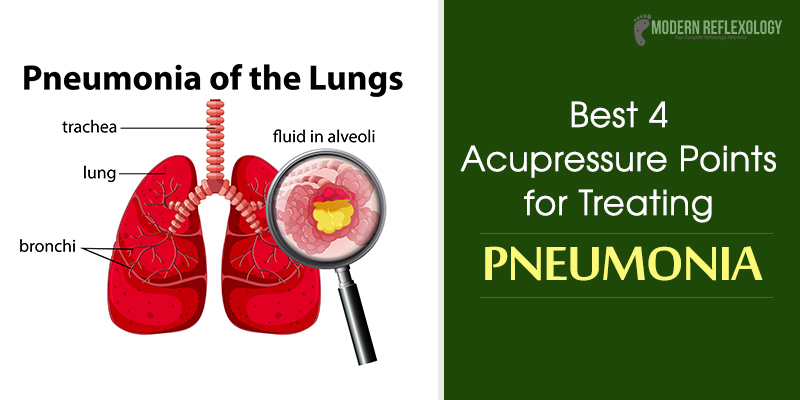
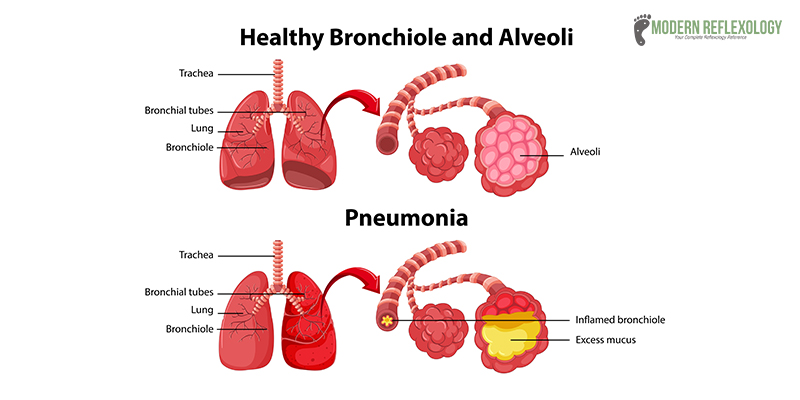
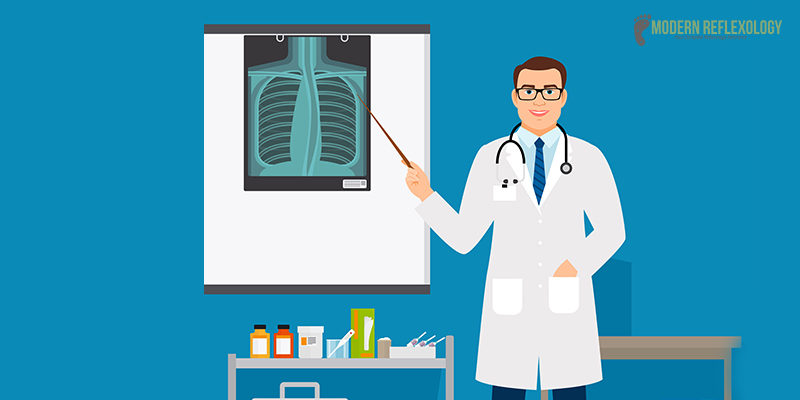
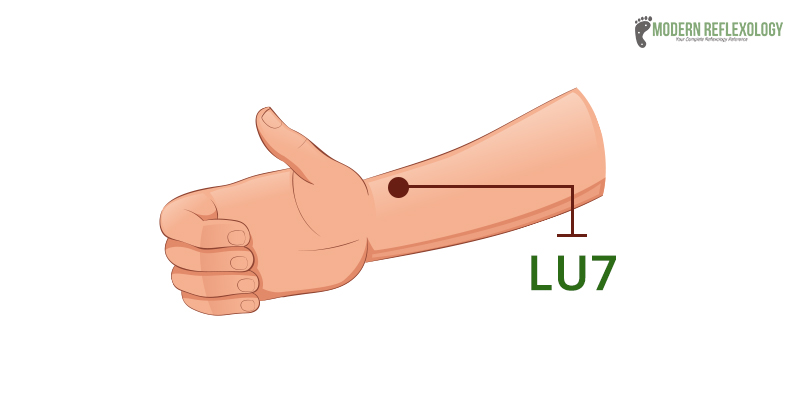
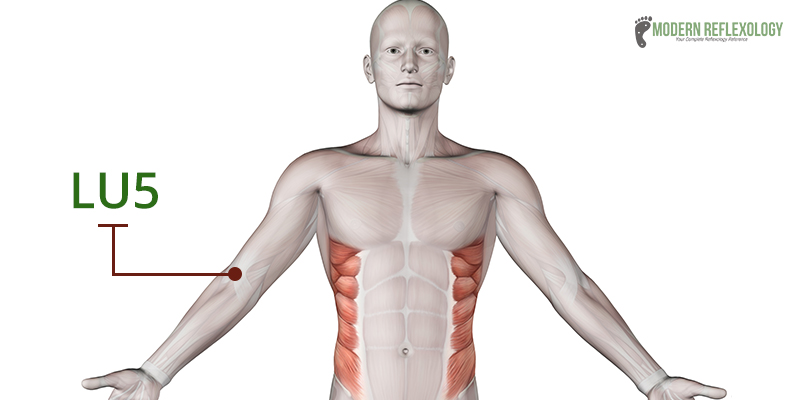
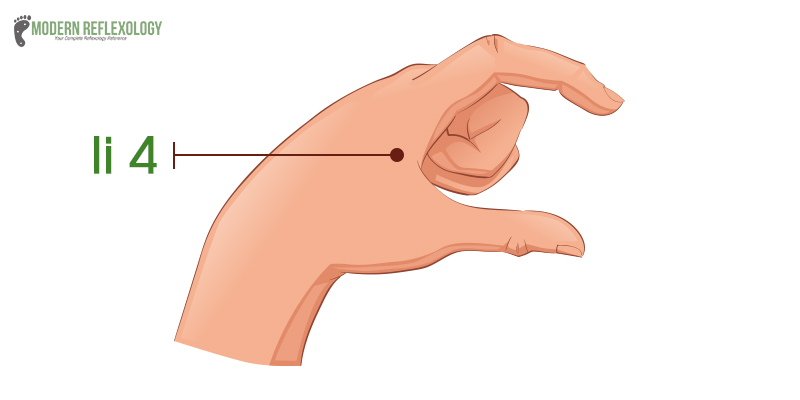
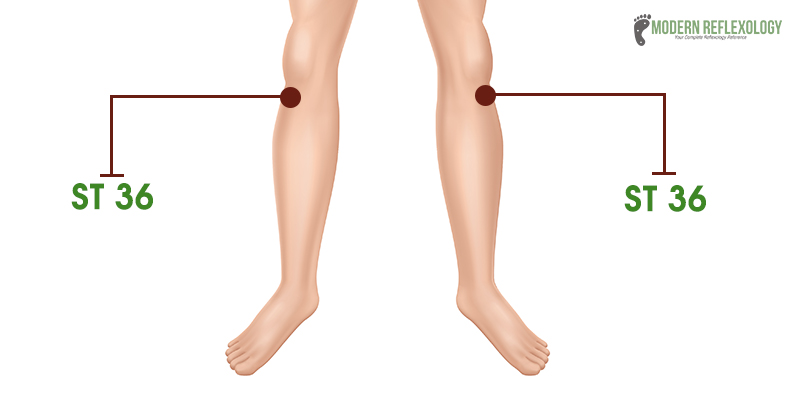
Comments are closed